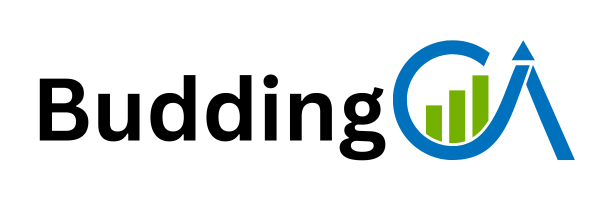Chartered Accountants (CAs) seeking roles in the banking sector need to go beyond technical knowledge and possess key skills to stand out during interviews. While financial expertise is crucial, the ability to showcase strong communication, analytical thinking, and problem-solving abilities is equally important. This article provides a comprehensive guide for CAs on how to crack banking interviews in India, focusing on the skills, preparation, and strategies necessary for success.
Understand the Role and the Bank
Research the Role
Before stepping into any banking interview, it’s essential to understand the role you are applying for. Whether it is in risk management, financial analysis, or compliance, the responsibilities can vary significantly.
- For Risk Management: Focus on knowledge of financial instruments, market trends, and risk mitigation strategies.
- For Compliance: Highlight familiarity with regulatory requirements, such as the Reserve Bank of India (RBI) norms, SEBI guidelines, and the Prevention of Money Laundering Act (PMLA).
- For Financial Analysis: Stress expertise in financial modelling, cash flow analysis, and investment strategies.
Researching the specific department or function within the bank will help you tailor your responses to the role you are applying for. Make sure you are clear about the job requirements, and align your skills and experience accordingly.
Learn About the Bank’s Culture
Each bank has its unique culture, whether it’s a public sector bank, private sector bank, or foreign bank. Understanding their values and goals will help you answer questions in a manner that resonates with the bank’s ethos. For example, private sector banks often value innovation, while public sector banks focus on stability and compliance.
Visit the bank’s website, read about its recent achievements, and understand its position in the market. Look into their corporate social responsibility (CSR) activities, digital banking initiatives, and overall business strategy.
Know Your CV Inside Out
Be Ready to Discuss Your Academic Qualifications
CAs are often interviewed for high-profile roles in banks, so interviewers will want to know about your academic background in detail. Be prepared to discuss your Chartered Accountancy qualification in-depth, particularly if you’ve taken any specialised courses or have an advanced certification in finance, taxation, or accounting.
Tip: Be ready to explain how your academic knowledge translates into practical skills that can benefit the bank. For instance, demonstrate how your understanding of IFRS or Indian Accounting Standards (Ind AS) can help with financial reporting or regulatory compliance.
Highlight Relevant Work Experience
If you have experience working in an audit firm, financial consultancy, or other finance roles, mention your key achievements and how they align with the banking industry. Focus on:
- Auditing: Share examples where you have worked on complex audits, highlighting your attention to detail and ability to identify potential financial discrepancies.
- Taxation: If you have worked on corporate tax returns, GST filings, or income tax audits, showcase your ability to manage regulatory requirements effectively.
- Advisory: If you have provided financial advisory services, discuss your ability to assess business performance and offer strategic insights.
Be prepared to demonstrate your problem-solving skills with real examples. Interviewers will be keen to know how you’ve applied your knowledge in different work situations.
Brush Up on Technical Knowledge
Master Banking Regulations
In any banking role, familiarity with the legal and regulatory framework governing the industry is crucial. Study up on:
- RBI Guidelines: The Reserve Bank of India (RBI) plays a central role in regulating the Indian banking sector. Be aware of the latest regulations on interest rates, loan classifications, and monetary policy.
- SEBI Regulations: If the job involves working in investment banking or capital markets, knowledge of SEBI’s guidelines and the functioning of stock exchanges is essential.
- Basel III Norms: These international banking regulations cover liquidity management, capital adequacy, and risk management. Familiarising yourself with these norms can be advantageous, especially for roles in risk management or treasury.
Additionally, it is crucial to keep up with any changes in taxation laws and their implications on banking operations, especially for roles in financial management or compliance.
Stay Updated with Financial Markets
The banking sector is closely linked to the financial markets. Brush up on the current state of the stock market, bond yields, interest rates, and major economic indicators. Understanding the financial health of banks and financial institutions is also key.
Tip: Demonstrate your understanding of key financial ratios like Return on Assets (ROA), Return on Equity (ROE), Net Interest Margin (NIM), and Non-Performing Assets (NPA) during the interview. These indicators are critical in assessing the performance of a bank.
Demonstrate Soft Skills
Strong Communication Skills
Banks value employees who can communicate effectively, whether it’s with clients, management, or colleagues. Be clear, concise, and confident in your responses during the interview.
- Structured Responses: Use the STAR method (Situation, Task, Action, Result) to structure your answers and make them more compelling.
- Active Listening: Pay close attention to what the interviewer says and respond accordingly. This shows you are engaged and focused.
Problem-Solving and Analytical Thinking
Banks often face complex financial challenges, and interviewers want to see how you approach problem-solving. Whether it’s a case study or a situational question, be ready to break down the problem, assess the situation, and come up with a solution.
Example: You might be asked how to manage a situation where a client is facing financial difficulties. Discuss your approach to evaluating their financial position, identifying areas of concern, and providing solutions such as restructuring debt or exploring alternative financing options.
Teamwork and Leadership
While technical expertise is important, banks also look for individuals who can collaborate effectively within teams. Be ready to discuss examples where you worked in a team, showcasing your interpersonal skills and ability to lead or support others when required.
Prepare for Common Interview Questions
Technical Questions
Expect questions that test your understanding of financial accounting, banking regulations, and financial analysis. You might be asked about:
- The difference between Ind AS and IFRS.
- How to calculate and interpret financial ratios.
- The process for managing non-performing loans (NPLs) and their impact on a bank’s balance sheet.
Behavioural Questions
Interviewers may also ask about how you’ve handled specific situations in the past. These questions help assess your soft skills. For example:
- “Tell us about a time when you had to manage a challenging project.”
- “Describe a situation where you worked with a difficult client. How did you manage the relationship?”
Use the STAR method to structure your answers clearly and concisely.
Motivational Questions
You might be asked why you want to work at that particular bank. This is where your research on the bank’s culture and values will help. Be prepared to explain why you are drawn to the bank, how you align with its goals, and what you can bring to the role.
Mock Interviews and Feedback
Consider participating in mock interviews with colleagues, mentors, or career coaches. This will help you refine your answers, gain confidence, and receive constructive feedback. Practising in front of a mirror or recording your responses can also help you identify areas for improvement.
A large part of an interview is non-verbal communication. Maintain good posture, make eye contact, and avoid nervous habits like fidgeting. A confident, composed body language makes a positive impression.
Final Preparations Before the Interview
Review the Job Description Again
Go through the job description once more and align your experience and skills with the requirements. Be ready to explain how your CA qualification adds value to the role and the bank’s objectives.
Dress Appropriately
Banks have a formal dress code, so make sure to dress professionally. A well-tailored suit, polished shoes, and minimal accessories reflect a professional image.
Arrive Early
Arriving 10-15 minutes before the interview shows punctuality and respect for the interviewer’s time.
Conclusion
Cracking a banking interview as a Chartered Accountant requires a combination of technical proficiency, industry knowledge, soft skills, and a deep understanding of the role and the bank you are applying to.
By thoroughly preparing for common interview questions, refining your communication and problem-solving abilities, and staying updated on the latest banking regulations and financial trends, you can confidently navigate the interview process.
Remember, confidence, preparation, and a clear demonstration of how your skills can benefit the bank will set you apart from other candidates and increase your chances of securing the role.
Calling all CA dreamers!
🔴 Are you tired of searching for the perfect articelship or job?
Well, fear no more! With 10K+ students and professionals already on board, you don't want to be left behind. Be a part of the biggest community around! Join the most reliable and fastest-growing community out there! ❤️
And guess what? It’s FREE 🤑
✅ Join our WhatsApp Group (Click Here) and Telegram Channel (Click Here) today for instant updates.




